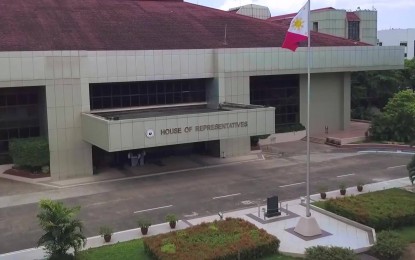
House of Representatives (Facebook photo)
MANILA – The passage of the absolute divorce bill is not being railroaded at the House of Representatives.
Such an accusation is belated and baseless, according to Albay (1st District) Representative Edcel Lagman on Friday as he dismissed the claims of Deputy Speaker Lito Atienza that the Committee on Population and Family Relations forced the unanimous approval of the substitute bill reinstituting absolute divorce.
"The committee did not commit any railroading, which is the approval with deplorable alacrity of a measure against the rules and/or without any thorough deliberation," Lagman said in a statement.
Lagman, the bill’s principal author, and committee chair Representative Ma. Lucille Nava of Guimaras said it took the House panel more than two years before approving the substitute bill on Tuesday.
Lagman noted that House Bill (HB) No. 100, the first measure on absolute divorce in the 18th Congress, was filed on July 1, 2019, while three divorce bills (HB Nos. 100, 838, and 2263) were referred to the committee on July 29, 2019.
He said the committee conducted an exhaustive committee hearing, where all of those who were invited and attended expressed and ventilated their views, either for or against the measure, on Feb. 5, 2020
Among those who presented their positions against absolute divorce were Fr. Jerome Secillano, chair of the permanent committee on public affairs of the Catholic Bishops Conference of the Philippines; lawyer Lyndon Caña, chair of the Coalition of Concerned Families in the Philippines; lawyer Ronald Reyes, convenor of the Advocates for Family and Life; and Jesus Joel Mari Arzaga, vice president of the Alliance for the Family Foundation of the Philippines, Inc.
Deliberations
The committee created a technical working group (TWG) to harmonize and consolidate the pending bills, and two meetings were conducted on Feb. 12, 2020 and March 4, 2020 wherein the advocates and adversaries of the measure were again invited.
The TWG submitted the substitute bill on March 2020 while Speaker Lord Allan Velasco submitted perfecting amendments May 2021 to be included in the substitute bill.
Lagman stressed that all regular and ex-officio members of the committee were notified in advance of the meeting on Aug. 17, 2021 for the consideration and approval of the substitute bill together with the corresponding committee report.
He said the committee did not apply the House rule that fast-tracks the approval of present bills that were already approved on third and final reading by the immediate preceding Congress, adding that the committee proceeded to "meticulously hear anew" all interested parties.
Anti-divorce
Atienza of the Buhay party-list, a known anti-divorce advocate, criticized the committee for “not inviting organizations to defend the sanctity of marriage”.
“We condemn the action taken by the Committee on Population and Family Relations in railroading the passage of the substitute bill on absolute divorce in the country. They passed it in record time, treating it as lightly as the renaming of a public street,” he said in a separate statement.
He claimed the bill is unconstitutional and vowed to question it before the Supreme Court.
“The Constitution says the sanctity of marriage should be protected by the State. Passing this measure goes against the inviolability of marriage, which should never be broken, infringed or dishonored. We will challenge this all the way to the Supreme Court, if needed, where we are sure it will be deemed unconstitutional,” Atienza said.
Lagman said the grounds for legal separation, annulment of marriage, and nullification of marriage based on psychological incapacity under the Family Code of the Philippines are included as grounds for absolute divorce and were amended to make said grounds cover causes arising after the solemnization of the marriage.
The bill states that the other grounds for divorce include separation in fact for at least five years at the time the petition for absolute divorce is filed; when one of the spouses undergoes a gender reassignment surgery or transitions from one sex to another; irreconcilable marital differences as defined in the bill; other forms of domestic or marital abuse which are also defined in the bill; valid foreign divorce secured by either the alien or Filipino spouse; and a marriage nullified by a recognized religious tribunal.
The effects of absolute divorce include the voiding of the marital union and capacitating the divorced spouses to remarry. (PNA)
